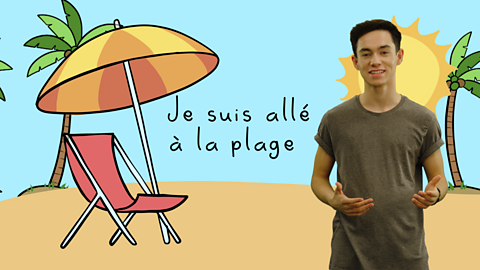How to use the verb 'to have' in French
It's always useful to be able to talk about what you have or don't have.‎
Avoir - to have is the second most frequent verb in French.‎
Like lots of really useful verbs ‎ І№±№ґЗѕ±°щ‎ is irregular and it goes like this!‎
J'ai deux pères‎ - I have two dads.‎
‎Tu as les cheveux longs‎ - You have long hair. ‎
Il a un chien‎ - He has a dog.‎
Elle a un chat‎ - She has a cat.‎
Vous avez un vélo bleu‎ - You have a blue bicycle.‎
There are some phrases where in English we would say I am ‎but in French you say I have.‎
‎ J'ai dix-sept ans‎ - I'm 17 years old.‎
‎ J'ai faim‎ - I'm hungry. ‎
‎ J'ai soif‎ - I'm thirsty.‎
‎ J'ai raison!‎ - I am right.‎
With ‎ avoir you can say what you and other people have.‎
Вб&#іж27;І№ѕ±вЂЋ - I have
tu as‎ - you have
‎il a‎ - he has ‎
‎elle a‎ - she has ‎
‎vous avez‎ - you have ‎
Avoir (to have) – a very useful verb
Avoir (to have) is a very useful verb and is used whenever we would say 'have' in English. It ‎is also used to form other tenses, such as the passé composé ().
- J’ai les cheveux noirs - I have black hair.‎
- Tu as un chat? - Do you have a cat?‎
- Elle a un frère - She has a brother.‎
- J’ai mangé une pomme - I have eaten/I ate an apple.
Using avoir to talk about the present
Avoir is an irregular verb, which means that it doesn’t follow the same pattern as regular ‎verbs in the present tense.‎
This is how to conjugate all the forms of avoir in the ‎present tense:‎
| English | French |
|---|---|
| I have | Вб’aѕ± |
| you (singular, informal) ‎have | tu as |
| he / she has | il / elle a |
| we have | nous avons |
| you (plural or polite) have | vous avez |
| they have (masculine or mixed group) | ils ont |
| they have (feminine group) | elles ont |
Using avoir to talk about the past
To talk about things you and other people had in the past, you can use the imperfect ‎tense of avoir.‎
This is how to conjugate the I, you and he/she forms of avoir in the imperfect tense:‎
| English | French |
|---|---|
| I had‎ | Вб’a±№І№ѕ±Іх |
| you had | tu avais |
| he / she had | il / elle avait |
Using avoir to talk about the future
To talk about things you are going to have in the future, you use the correct form of aller ‎‎(to go) plus the infinitive avoir (to have). This tense is called the immediate future and is ‎translated as 'I am going to have', 'you are going to have', 'he/she is going to have'. ‎You form it as follows: ‎
| English | French |
|---|---|
| I am going to have | je vais avoir |
| you are going to have | tu vas avoir |
| he / she is going to have | il / elle va avoir |
Some more useful expressions using avoir ‎
Sometimes, avoir (to have) is used in French where 'to be' is used in English. Here are ‎some useful expressions where this is the case:‎
| English | French | Example |
|---|---|---|
| to be … years old | avoir … ans | J’ai onze ans‎ ‎- I’m 11 years old.‎ |
| there is/there are | il y a …‎ | Il y a deux supermarchés ‎dans ma ville - There are two ‎supermarkets in my town.‎ |
| there isn’t/there aren’t | il n’y a pas de…‎ | Il n’y a pas de cinéma dans ‎ma ville ‎- There isn’t a cinema in my ‎town.‎ ‎ |
| to be hungry / thirsty | avoir faim / soif | Ma mère a faim - My mum is hungry.‎ |
| to be hot / cold | avoir chaud / froid | J’ai froid - I’m cold.‎ |
| to be afraid | avoir peur | J’ai peur des araignées - I’m scared of spiders.‎ |
Quiz
Find out how much you know about the verb avoir in this short quiz.
More on Grammar
Find out more by working through a topic
- count5 of 8

- count6 of 8

- count7 of 8
